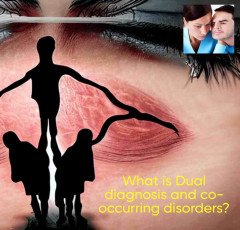
What is Dual diagnosis and co-occurring disorders ?

When a person has both a substance use disorder and a mental health disorder, this is referred to as having a dual diagnosis.
This indicates that the individual is coping with two separate but connected disorders, such as alcoholism and depression or anxiety and drug addiction.
Co-occurring disorders, commonly referred to as comorbid disorders, are when a person has two or more mental health conditions concurrently.
Examples include bipolar disorder and PTSD or bipolar disorder and anxiety. This phrase can also be used to describe having both a medical illness like diabetes or depression and a mental illness like depression.
Due to the possibility of symptom overlap or masking, co-occurring diseases, such as dual diagnoses, can make it more difficult to diagnose and treat patients. It is crucial to recognize both problems and offer integrated treatment that simultaneously addresses mental health and substance use disorders or other conditions. Dual diagnosis treatment or integrated treatment are two names for this strategy.
A typical integrated treatment program consists of a mix of individually customized medicine, therapy, and support services.
Depending on the severity of the diseases and the degree of care needed, treatment may take place in an outpatient or inpatient setting.
Integrating mental health and drug use disorders into a person's treatment plan helps them recover from both conditions and enhances their overall quality of life. This method acknowledges that it is frequently unsuccessful to treat one problem without addressing the other, and that people with co-occurring disorders may need more intense care over time than those with a single diagnosis.
To ensure that the patient receives complete care that meets all of their requirements, integrated treatment may also entail coordination between mental health and drug abuse specialists and other healthcare experts.
People with co-occurring disorders or dual diagnoses should get care as soon as they can.
It is possible to control these problems and have a full life with the correct care and assistance.
Individuals may need to go through a thorough evaluation by a mental health or drug addiction expert in order to acquire an appropriate diagnosis of dual diagnosis or co-occurring illnesses. Physical examination, psychological testing, and a review of the patient's medical and mental health history may all be included in this assessment.
During the assessment procedure, it may also be necessary to check for any health problems that could be causing the person's symptoms, such as infectious infections or nutritional deficiencies.
Treatment for co-occurring disorders or dual diagnoses often include a variety of therapies that address both the substance use problem and the mental health disorder.
These could consist of psychotherapy, behavioral therapies, support groups, medication-assisted treatment, and other types of psychosocial support.
In some circumstances, dealing with additional problems that may be affecting the patient's general health and well-being, such as financial or legal challenges, relationship difficulties, or housing instability, may be part of treatment for dual diagnoses or co-occurring disorders.
Individuals with co-occurring disorders or dual diagnoses should collaborate closely with their medical professionals to create an all-encompassing treatment strategy that meets their needs. Recovery and long-term health and wellness can be maintained with the correct support.
For people with dual diagnoses or co-occurring disorders, support from family and friends can also be a crucial component of rehabilitation.
For people who are battling mental health and substance use disorders, loved ones can offer emotional support, encouragement, and help with daily tasks that may be difficult.
For people with co-occurring illnesses or dual diagnoses, support groups can be a useful resource.
People can discuss their experiences in these groups in a safe and encouraging environment, learn from others who are facing comparable difficulties, and get support from peers who can relate to their struggles.
Individuals with dual diagnoses or co-occurring disorders must seek help as soon as possible and work together with healthcare professionals to create an all-encompassing treatment plan that meets all of their requirements if they are to successfully complete therapy and recover. Individuals can overcome the difficulties of having a dual diagnosis or co- occurring disorders and have happy and fulfilling lives with the correct support and care.
For people with co-occurring disorders or dual diagnoses to put self-care first and adopt healthy lifestyle choices that support their general health and wellbeing. This may involve maintaining a healthy sleep routine, exercising frequently, eating a nutritious food, abstaining from drugs and alcohol, and reducing stress by using breathing exercises like yoga, meditation, or mindfulness.
Recovering from dual diagnoses or co-occurring illnesses is a continuous process that may call for continuing support and care.
Although people may encounter setbacks or relapses, it's crucial to remain committed to the recovery process and to keep seeking support when necessary.
It is crucial to seek professional assistance if you or someone you love is dealing with a dual diagnosis or co-occurring disorders.
There are various services accessible, including support groups, facilities for mental health and substance abuse treatment, and online information. It is possible to overcome these obstacles and lead a healthy, full life with the correct assistance and care.
Dual diagnosis or co-occurring disorders frequently take the following forms:
Alcohol abuse and depression:
People who are depressed may turn to alcohol to help them cope with their symptoms, but doing so might make them more dependent on it and make their mental health problems worse.
Drug addiction and anxiety:
Those who struggle with anxiety may turn to drugs as a kind of self-medication, but doing so can result in addiction and exacerbate their anxiety symptoms.
Bipolar disorder and substance abuse:
People with bipolar disorder may use drugs or alcohol more frequently when they are manic, but this can also exacerbate their mood symptoms and hinder their ability to receive treatment.
Substance abuse and PTSD:
People with PTSD sometimes use drugs or alcohol to dull their feelings or cope with trauma, but doing so can result in addiction and worsen their symptoms.
It is significant to remember that dual diagnosis or co-occurring illnesses can refer to any combination of mental health and substance use disorders. Although treating these disorders can be difficult and complex, with the correct care and support, it is possible to recover and enhance general health and well-being.
With estimates indicating that as many as 50% of people with a mental health illness also struggle with drug abuse or addiction, dual diagnosis or co-occurring disorders are very common.
There are a number of risk factors that could raise someone's risk of dual diagnosis or co-occurring disorders.
These can include a history of trauma or abuse, a history of substance misuse, living in poverty or with other social disadvantages, having a co-occurring medical condition, and having a family history of mental illness or addiction.
When treating dual diagnoses or co-occurring disorders, early intervention is crucial because these diseases can worsen and have serious negative effects on one's health and ability to function if left untreated. It is also critical to understand that recovery from co-occurring or dual diagnoses disorders is feasible and can be attained by combining efficient care with continuous support and self-care.
Effective dual diagnosis or co-occurring disorder therapy often entails a thorough, integrated strategy that concurrently tackles the mental health and substance use issues. This may include interventions to address other needs, such housing or work, as well as a combination of medication, psychotherapy, behavioral therapies, and support groups.
Pharmacotherapy, such as antidepressants or antipsychotics for depression or anxiety, or drugs for opioid addiction or alcohol dependency, may be used to control the symptoms of mental illness and/or addiction. Psychotherapy and behavioral therapies, such as cognitive-behavioral therapy (CBT) or dialectical behavior therapy (DBT), can assist patients in addressing problematic beliefs and behaviors that lead to mental health and drug use problems as well as helping them learn coping mechanisms and stress management techniques.
Peer assistance and advice from people going through comparable situations can be found in support groups like Alcoholics Anonymous (AA) or Narcotics Anonymous (NA).
Other forms of assistance, including support for employment or education, can aid people in developing their abilities and raising their quality of life.
It's crucial to collaborate closely with a mental health or addictions specialist to create a treatment strategy that is suited to each patient's unique requirements and circumstances.
A person's treatment plan may be made to work effectively and to make sure they are getting the support and attention they need to recover if they are regularly monitored and given follow-up care.
Alternative and complementary therapies can be beneficial for those with dual diagnoses or co-occurring illnesses in addition to conventional treatment choices.
Acupuncture, massage treatment, art therapy, and mindfulness-based exercises like meditation and yoga are a few examples.
For people with co-occurring illnesses or dual diagnoses, self-help techniques can be a crucial component of recovery.
This may entail making constructive lifestyle adjustments, such as starting an exercise and eating regimen, giving sleep and stress management first priority, and avoiding triggers or circumstances that could result in substance use.
Recognizing that recovery from dual diagnoses or co-occurring illnesses can be a difficult and complicated process is vital. With the correct assistance and care, it is possible to overcome these difficulties and enhance general health and well-being. A sustainable recovery may require time, patience, and perseverance.
To aid with the difficulties of rehabilitation, it is also crucial to look for support from family, friends, or a support group. Support from loved ones can be an essential component of the healing process and can keep patients motivated and responsible for their treatment objectives.
Additionally, it's critical to keep in mind that rehabilitation is a personal journey and that what works for one person may not necessarily work for another. Finding the ideal mix of care and assistance that suits a person may require some trial and error, so it's crucial to be patient and kind to oneself along the way.
A mental health illness and a drug use disorder are referred to as having a dual diagnosis or co-occurring disorders.
Despite the complexity and difficulty of treating these disorders, it is possible to make a long-lasting recovery and enhance general health and wellbeing with the correct assistance and care. Drug therapy, psychotherapy, behavioral treatments, support groups, alternative and complementary therapies, and self-help techniques may all be used in the course of treatment, which normally takes a comprehensive, integrated approach to both mental health and substance use disorders.
If you are exhibiting signs of a mental illness or substance abuse, or if you think you could have a dual diagnosis or co-occurring disease, you should get help from a mental health or substance abuse specialist. Early intervention is crucial in the treatment of these diseases because, if neglected, they can worsen and have a negative impact on one's health and ability to function.
There are numerous services for help and therapy available if you or someone you know is dealing with a dual diagnosis or co-occurring disease.
Resources like these could be useful:
It is also crucial to keep in mind that people who have a dual diagnosis or co-occurring disease could have more difficulties getting treatment, like stigma or a lack of access to care. It is critical that healthcare professionals and society as a whole confront these obstacles and seek to increase everyone's access to high-quality care and assistance.
Prioritize self-care and get assistance as soon as you can if you or someone you know is battling with a dual diagnosis or co-occurring disorder.
Keep in mind that rehabilitation is a journey, and that achieving long-term health and wellbeing may require patience, persistence, and time. However, these difficulties can be addressed and general quality of life improved with the appropriate assistance and care.
Last but not least, it's critical to understand that recovery from a dual diagnosis or co-occurring condition is not a straightforward procedure. Along the path, there can be obstacles and setbacks, but these shouldn't be seen as failures. Instead, it's critical to adopt a growth mindset when approaching rehabilitation, seeing setbacks as chances for improvement, and to keep working toward recovery with tenacity and resiliency.
Overall, treating dual diagnoses or co-occurring illnesses is difficult and complex, but with the correct care and support, it is possible to make a full recovery. It is crucial to seek assistance from a mental health or drug abuse specialist as soon as possible if you or someone you know is dealing with a dual diagnosis or co-occurring condition.
Yes, getting help from a mental health or addiction specialist is crucial for treating dual diagnoses or co-occurring disorders effectively.
These experts can offer a thorough assessment and create a tailored treatment plan that tackles both substance use problems and mental health issues.
Treatment for co-occurring disorders or dual diagnoses frequently entails a mix of therapies, such as medication, psychotherapy, behavioral therapies, and support groups. In order to improve overall results and lower the chance of recurrence, integrated treatment, which integrates mental health and substance misuse treatments, is frequently advised.
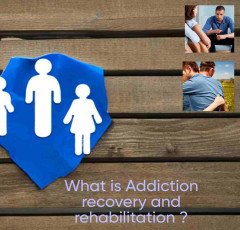
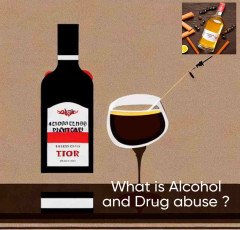
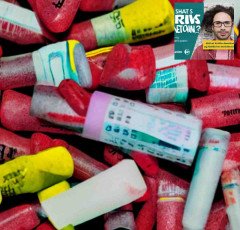
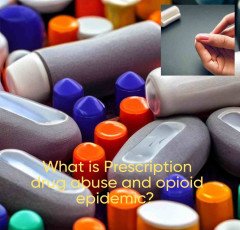

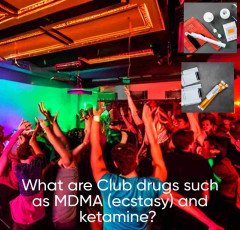









 One World Collection
One World Collection  Amazon Best Selling Products
Amazon Best Selling Products  All Wireless Products
All Wireless Products  Unreal Engine 5 For Beginners Learn The Basics Of Virtual Production
Unreal Engine 5 For Beginners Learn The Basics Of Virtual Production  Men Clothing
Men Clothing  Graphics & Design
Graphics & Design  The Secret Email System
The Secret Email System  Hot Bags For Pain Relief
Hot Bags For Pain Relief  Online Technology Classes
Online Technology Classes  Best Selling Books
Best Selling Books  SOFAS
SOFAS  Favorite Company (Cuelinks)
Favorite Company (Cuelinks)  NordVPN
NordVPN  Sennheiser
Sennheiser  Artificial Intelligence
Artificial Intelligence  Top Rated From Amazon
Top Rated From Amazon  SEO Checklist
SEO Checklist  Women Fashion
Women Fashion  Unlimited access to classes on illustration, photography, design, film, music
Unlimited access to classes on illustration, photography, design, film, music  Creative Brief For Video Shoot
Creative Brief For Video Shoot  NordPass
NordPass  1150+Trendy kids coloring pages Bundle
1150+Trendy kids coloring pages Bundle  Best Home Appliances
Best Home Appliances  ELECTRONIC ACCESSORIES
ELECTRONIC ACCESSORIES  RPM 3.0
RPM 3.0  BEST SELLER TOP10
BEST SELLER TOP10  Best Robotic Vacuum Cleaners
Best Robotic Vacuum Cleaners  Hello Theme
Hello Theme  NordLocker
NordLocker  ASUS Laptop
ASUS Laptop  Only For The United States
Only For The United States  TitTok Revolution
TitTok Revolution  Acer Laptop
Acer Laptop  The Click Engine
The Click Engine  Smart Doorbell
Smart Doorbell  ASPINAL LONDON
ASPINAL LONDON  Best Sellers On Amazon
Best Sellers On Amazon  Online Marketing
Online Marketing 
















